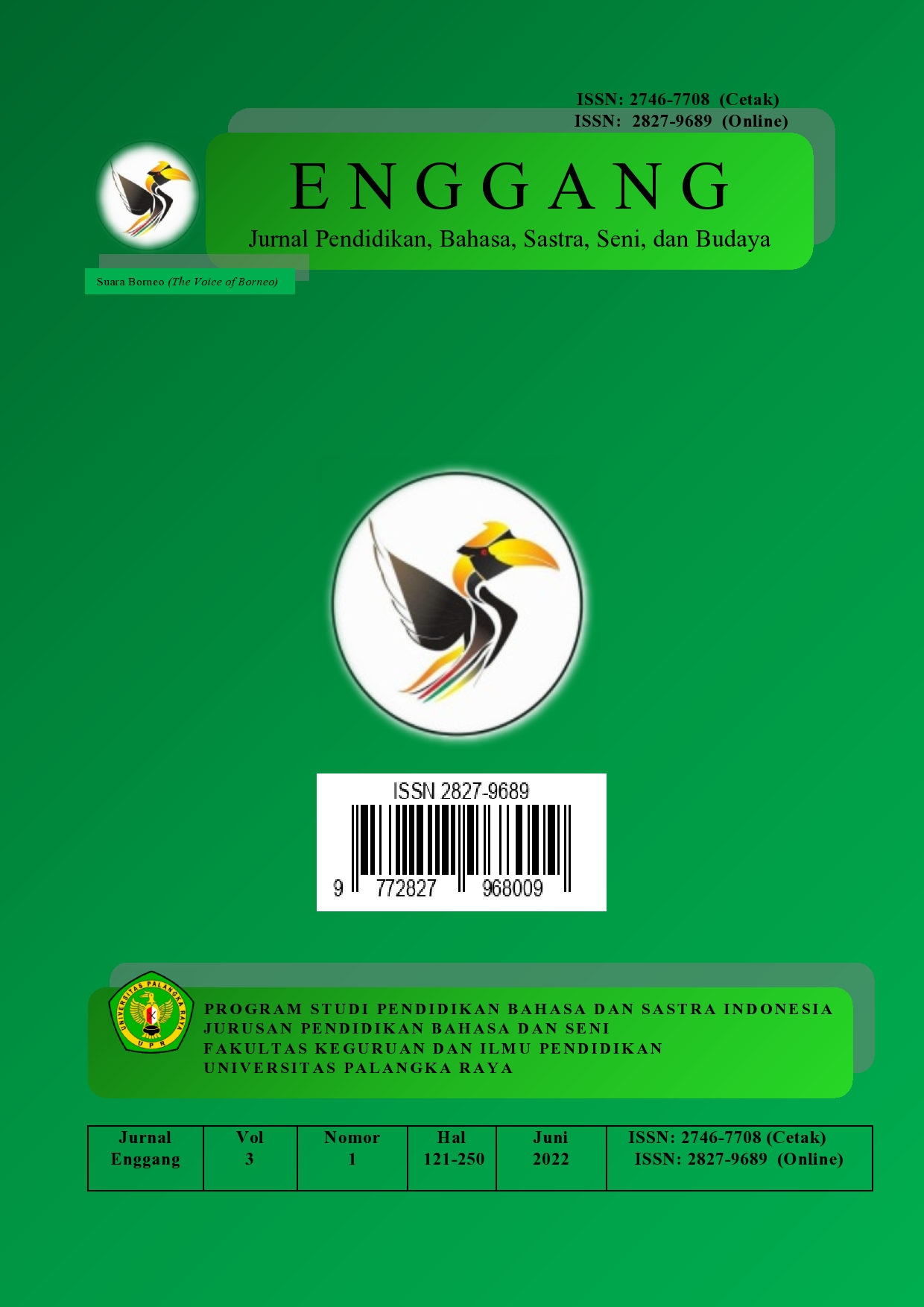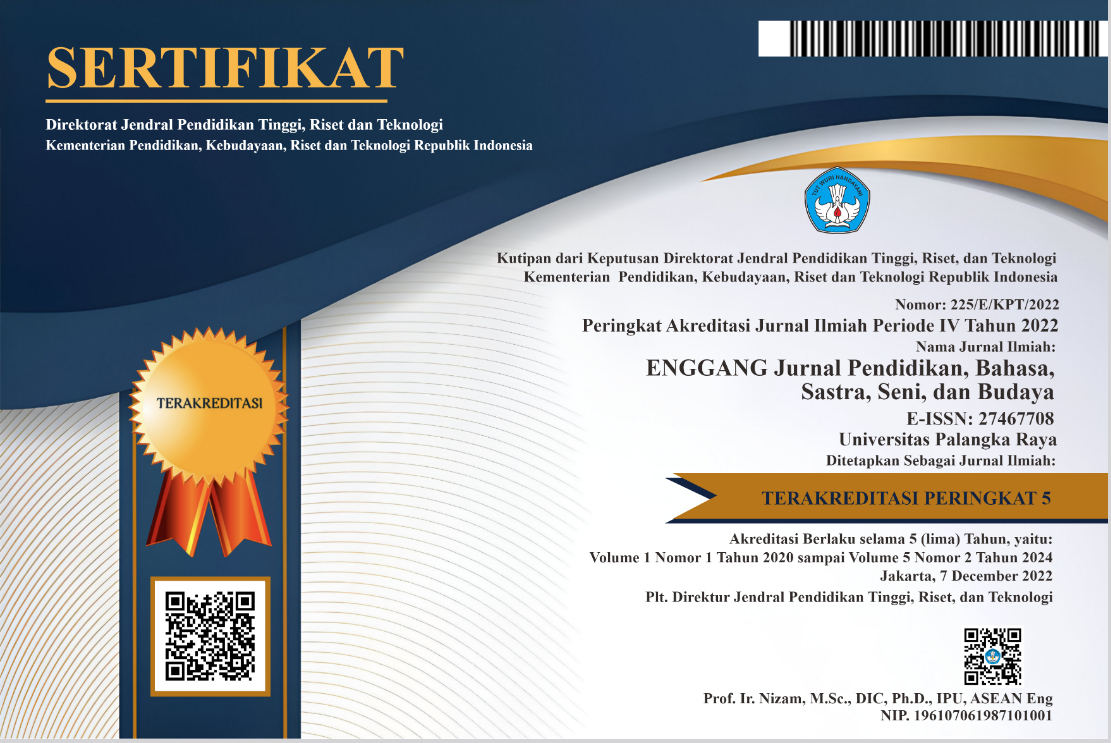DIGITALIZATION MANAGEMENT: ENHANCED TOURIST ENGAGEMENT BAH KOH SAMED ISLAND, CHUMPHON PROVINCE, THAILAND
DOI:
https://doi.org/10.37304/enggang.v3i2.9126Keywords:
Governance, Bah Koh Samed, Tourism, Tourists, SWOT analysis, Digitalization Management, TechnologyAbstract
The issue of tourism governance in Bah Koh Samed is very important to find a solution, so that tourists can have a good experience and local communities can utilize tourism as a sustainable source of income. Good governance involves an online ticketing system and digitalization strategies to strengthen the image of tourism. This case study focuses on finding alternatives to Koh Samed as a creative tourism destination that not only attracts more tourists but also restores Koh Samed sustainably. A new tourism model can be created with the development of digitalization technology for Koh Samed Bah Island operations ranging from ticket validation, ticketing solutions, ticket point of sale, voucher codes, communication, and partnership to increase visitors as well as revenue. Through increasing the attraction of art activities, it can be directly listed on the Koh Samed Bah Island website and links. Offer and develop creative spaces for Bah Koh Samed Island that need to increase the art network through digitalization management. The main object of this research focuses on the role of tourists, local communities, and stakeholders through digitization management, and the networking of each destination location by utilizing the arts and cultural ecosystem. This research method uses descriptive qualitative methods, data collection, interviews, and documentation. Data collection is not only by interacting with each other, but written and in-depth. Then automatic verification from each stakeholder will help answer the obstacles that exist during or before. Then proceed with data analysis which is used to answer research problems by testing hypotheses through the data that has been obtained. Data analysis instruments use SWOT analysis as an initial basis for knowing weaknesses and strengths. Then in-depth analysis to increase visitors through increasing the attraction of art activities and developing digitalization technology.
Downloads
References
Ahyani, N., & Kesumawati, N. (2021, July). An Analysis of Strength, Weakness, Opportunity, and Threat (SWOT) Implementation of E-Learning During Pandemic Covid-19. In International Conference on Education Universitas PGRI Palembang (INCoEPP 2021) (pp. 733-737). Atlantis Press.
Cunningham, P. A., Huijbens, E. H., & Wearing, S. L. (2012). From whaling to whale watching: examining sustainability and cultural rhetoric. Journal of Sustainable Tourism, 20(1), 143-161.
Fikri, H., & Putra, P. (2022). Swot Analysis In Education. International Journal Of Humanities, Social Sciences And Business (Injoss), 1(1), 26-29.
Gupta, S., & Solanky, M. (2021). Tourism in Asia: The Troubled History, Demanding Present and Prospective Future. Future of Tourism in Asia, 3-19.
Khair, U., & Misnawati, M. (2022). Indonesian language teaching in elementary school: Cooperative learning model explicit type instructions chronological technique of events on narrative writing skills from interview texts. Linguistics and Culture Review, 6, 172-184.
Lashley, C. (2009). The right answers to the wrong questions? Observations on skill development and training in the United Kingdom's hospitality sector. Tourism and Hospitality Research, 9(4), 340-352.
Gorensek, T. (2018). Conceptualization Of Digitalization: Opportunities And Challenges For Organizations In The Euro-Mediterranean AREA. https://emuni.si/wp-content/uploads/2020/01/IJEMS-2-2019_93%E2%80%93115.pdf
Muliawanti, L., & Susanti, D. (2020). Digitalisasi destinasi sebagai strategi pengembangan promosi pariwisata di Kabupaten Magelang. Warta Ikatan Sarjana Komunikasi Indonesia, 3(02), 135-143.
Putri, G. E., Misnawati, M., Syahadah, D., Sari, Y., Ummy, R., & Nurfitria, I. (2023). Pengamalan Nilai Profil Pelajar Pancasila Dalam Proses Pembelajaran Pada Era Digital Di SMPN 6 Palangka Raya. Cakrawala: Jurnal Pengabdian Masyarakat Global, 2(1), 171-190.
Ratten, V., & Dickson, G. (2021). Disruptions in sport management from COVID-19: Lessons from entrepreneurship and innovation. In Innovation and entrepreneurship in sport management (pp. 9-21). Edward Elgar Publishing.
Romadhona, D. P. W., Norliana, N., Resnawati, R., Misnawati, M., Nurachmana, A., Christy, N. A., & Mingvianita, Y. (2023). Implementasi dan Problematika Gerakan Literasi di SD Negeri 2 Palangka. Journal of Student Research, 1(1), 114-128.
Simanullang, P. (2022). Application of Introduction To Personality Psychology 5 Genetic Intelligence Through The Concept of Stifin Test. ENGGANG: Jurnal Pendidikan, Bahasa, Sastra, Seni, dan Budaya, 3(1), 100-109.
Supriatin, Y. M., & Istiana, I. I. (2022, November). Kearifan Lokal Masyarakat Adat Sinar Resmi sebagai Identitas Bangsa. In PROSIDING SEMINAR NASIONAL PENDIDIKAN, BAHASA, SASTRA, SENI, DAN BUDAYA (Vol. 1, No. 2, pp. 01-14).
Syah, R. F., Fasa, M. I., & Suharto, S. 2021. Analisis SWOT Dalam Strategi Pemasaran Produk Perbankan Syariah Di Indonesia. Al-Kharaj: Jurnal Ekonomi, Keuangan & Bisnis Syariah, 3(3), 396-416.













